ITV drama series ANNE starts this Sunday evening, revealing the incredible story of Anne Williams.
Anne, from Formby, was devastated by the loss of 15-year-old Kevin, who died at the FA Cup semi-final between Liverpool and Nottingham Forest played at Hillsborough in April 1989.
Refusing to accept the Coroner’s original verdict of accidental death, Anne was determined to unearth the truth about what happened at Hillsborough. She sought out new medical opinions, tracked down witnesses who had tried to revive Kevin on the pitch and lobbied ministers for new inquests.
At times to the cost of her own family and health, Anne stood defiant for over 20 years alongside the parents and relatives who fought to prove that their loved ones had been unlawfully killed at a football match.
The drama series is written by writer Kevin Sampson and you can read a full Q&A with Kevin below:
Q: As a Liverpool fan, what was your own experience of Hillsborough on April 15 1989?
“On the day everything was upbeat up until the moment we walked through the park that led to the bottleneck outside the Leppings Lane end. That was the first we knew anything was markedly different. Just how far backed up the crowd was. This was about 2:30pm before the 3pm kick off. At that point the sun was shining, it was FA Cup semi-final day and everyone was in good spirits.
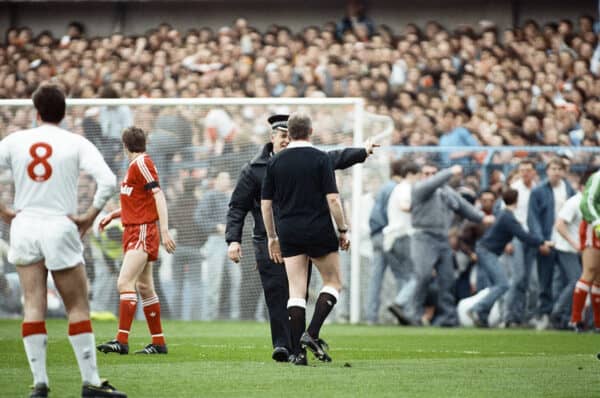
“But when that crowd wasn’t particularly moving and it was starting to look as though we might miss the kick off, people were becoming agitated. There was a lot of discomfort as well. A lot of kids being pulled out of the crowd. People shouting to the police. There were a couple of police on horseback and quite a few on foot. They were all as disturbed and as anxious as we were about the mounting congestion and were doing what they could to tell everybody to just carry on queueing and waiting. For the main part I felt everybody behaved impeccably.
“When they opened the first of the concertina gates at the ground people actually just stood back. It didn’t enter our heads they were being opened to let us in. Then when it became apparent, people started to file inside. There was no sudden stampede, there was no in-rush. People were thinking it was a bit too good to be true. But we were actually walking in.
“I had been to Hillsborough before and I’m also relatively diminutive. So, wherever there are crowds I veer away. Everybody was going down the entrance to the central pens but I pulled the others to the left and said, ‘Let’s go round. There’s another entrance at the side.’
At that point we were still thinking we had an incredible stroke of luck because a steward and a uniformed police officer told us we could sit on the side of the pitch. I couldn’t believe it. At an FA Cup semi final. Sitting on the touchline. Literally the best position you could possibly have.
“The game had already started by then – it had kicked off a minute or so before – and when we sat down and looked to our right we could see how close people’s heads were together. It was so tightly packed. Then people were being lain out behind the goal and on the pitch and eventually the game is stopped. We saw somebody being helped past with their arm looking like a letter ‘Z’ – clearly it had been severely broken.
And then the enormity of what was happening dawned on us. It was fairly easy to surmise there had been severe crushing in the Leppings Lane end. My brother Neil was one of the first people to join in with that effort to pull the advertising hoardings off and use those as makeshift stretchers. We all did what we could to help.
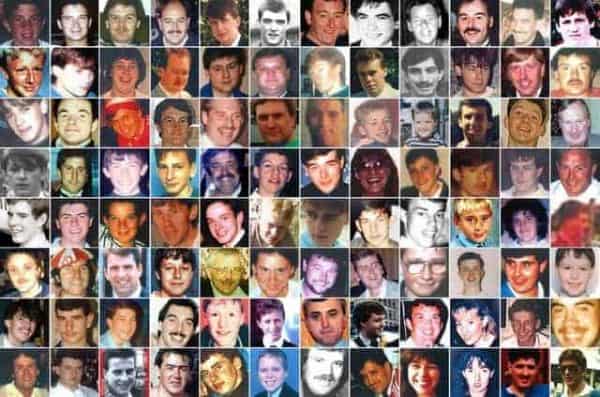
“Later, when the game was completely called off and Kenny Dalglish came out and the announcement was made that everybody was to leave the stadium immediately, as slowly and calmly as possible, you were starting to hear news from people who had transistor radios that there had been deaths. We had wondered – having seen one or two people – if there had been fatalities.
When we got back to the car and put the radio on, the first figures started coming through. It was devastating. We all immediately burst into tears. As you can imagine, it was a very sombre journey back over the Pennines.”
Q: How was the TV drama developed?
“I look at ‘Anne’ as a companion piece to Jimmy McGovern’s Hillsborough drama in 1996, which was incredibly strong and moving. The timing of that film was so important. It gave a massive shot in the arm to the campaign when it really needed it.
“After Anne passed away in 2013, the Warrington inquests took place. They went on to become the longest jury based judicial process in UK legal history – two and a half years. Quite appropriately, everything was embargoed. So, Hillsborough Voices was finished but couldn’t be published. And we couldn’t even discuss the idea of a drama while the inquests were still going on. Everything really precipitated from when the inquest jury returned the verdict in April 2016 that the 96 people who lost their lives at Hillsborough were unlawfully killed.
“From that point I was speaking with Anne’s daughter Sara and also with Anne’s brother Danny, along with a journalist called Dan Kay, who in those days was working on the Liverpool Echo and co-wrote the second volume of Anne’s book – ‘With Hope In Her Heart’. Sara’s promise to her mum when she was dying was that she would complete that book.
So, from the end of 2016 we started talking about the idea of a TV drama in a really focused way and Sara gave her blessing to the project.”
Q: Why tell Anne’s story?
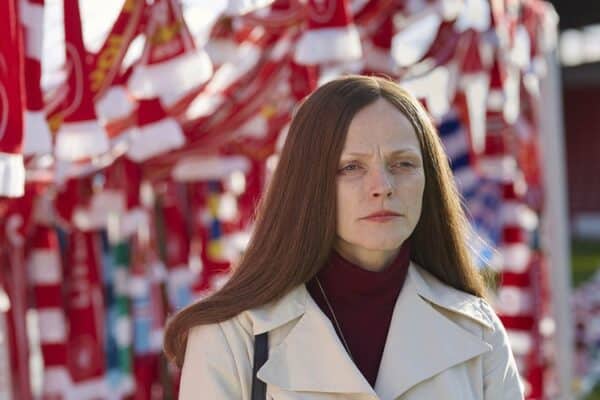
“The Hillsborough story is so huge and there are so many admirable and inspirational characters and so many facets to it. But if we wanted to look to one person who embodied all of that communal effort, it’s Anne. I spoke to Anne about this and she was laughing, saying, ‘Who’s going to play me?’ That was where the whole thing started.
“By choosing to write a drama about Anne, that is not to say she did any of this on her own. All of the campaigners are heroic. Especially the women and especially the mums. My original working title for the drama was ‘Mum’.
If there is one enduring message about this drama it is about that universal power of mothers who do whatever is necessary to do right by their children. In this case it was a mother’s love. In the best possible sense, an ordinary mum compelled to go to extraordinary lengths to simply get the truth about what happened to her son. Because she was told so many different accounts. So, to get the truth and to get justice for Kevin and for everybody who died at Hillsborough.
“In the somewhat misleadingly frail demeanour of Anne Williams, she actually embodies that fighting spirit that all of the Hillsborough mums shared. There are so many inspirational Hillsborough women and campaigners. Anne embodies the best of them. She embodies so many of those qualities. Essentially, she was an ordinary mum when she woke up on the morning of the game on the 15th of April 1989, going off to do a weekend job. One of her many jobs to bring money into the family. And by the time she went to bed her entire life had changed. You can absolutely say that Hillsborough killed Anne Williams as well as Kevin.
“The skills that she took on. She became expert in the law. She read voraciously. She read up on the minutiae of crush asphyxia as distinct from traumatic asphyxia. She spent time with specialists, surgeons and medical experts and became expert herself. She was relentless. It’s these qualities, and relating them back to that very human, that essential spirit of wanting to protect your child, those are the things that I felt were so important to portray.
“We tell the story through Anne but others are involved. Sheila Coleman, for example, is integral to Anne’s story. Anne’s daughter Sara has said on a number of occasions, ‘Sheila gave my mum her voice.’ Anne found it very difficult to make eye contact. She was a shy woman. And if you look at the Anne Williams on ‘Truth Day’ in 2012, standing on the St George’s Hall Plateau addressing a crowd of thousands, you would not think this was somebody who had had low self-esteem and had wanted to stay in the background for most of her life.
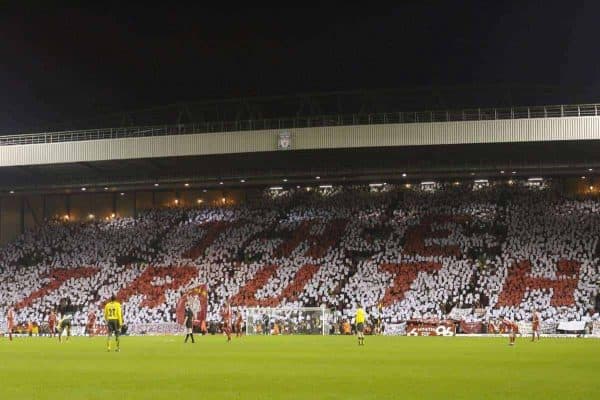
“Sheila was somebody who channelled that inner strength, that indomitable character that Anne had and helped to focus it on those areas that she could go ahead with. For example, the tracking down of individuals. She found this photograph of the people who had carried Kevin and went to such lengths to track down all of those individuals and found out that one of them was actually an off-duty policeman. She was relentless in her attempts to identify that policeman. She kept going and kept going. I think Sheila is very important in that stage of Anne’s genesis as a campaigner and as an investigator.
“She described them as being like Cagney and Lacey at times when they were trying to track down missing files and photographs and, crucially, the video tapes from the BBC they found. Notoriously, Anne used to carry these discoveries and files she accumulated round in a Kwik Save bag. It was quite a familiar sight, seeing her come into this pub, The Vernon Arms in Dale Street, Liverpool, with her Kwik Save bags.
“And then there are people like the Glovers…John Glover was the original chair of the Family Support Group. In the year immediately after the disaster Anne was bewildered and simply unable to process what had happened. Partly because of the misinformation she had been fed. But I think the pivot for her, where she steps out from being passive to being incredibly active, was the verdicts of the original inquests.
The sight of those families outside the High Court in Sheffield. Broken, devastated and unable to understand how a verdict of accidental death could have been reached. When she thinks, ‘OK, this is the moment where I have to do something. I have to know what happened to my boy.’ And John Glover is instrumental in introducing her to Sheila and from there her life as a dedicated campaigner, investigator, legal and medical expert, all of these things, begins to coalesce.”
Q: The first episode is a harrowing, emotional watch. But that is as it should be?
“I think the important thing to emphasise is this is a story about ordinary people. It’s a human story and it is a tragedy. It’s emotional. Because what it brings home is this is something that should not have happened.
It was avoidable. It could happen to anybody who has an interest in spectator sport, whether you go to football, rugby or whatever. Music festivals. Anywhere where there is a crowd. It brings it home that these were people who had set off in the morning with absolute excitement and hope in their hearts. And they didn’t come home.
Anne’s 15-year-old son Kevin was one of them. Anne wanted to know what happened to him. She couldn’t allow herself any peace until she had found out that truth and done what she could to address that truth. Her abiding mission was that she wanted the correct cause of death on his death certificate. She didn’t live to see that. But Sara did. Sara picked up the death certificate and that’s something that gives her great solace.”
Q: Have the Hillsborough victims, families and survivors had any justice?
“I think everybody who was closely connected with the campaign thought our day came in Warrington in 2016. There were 14 separate points and each of those came out in favour of the families, the survivors, the campaigners and the Liverpool supporters. The legal teams at the time took the families to one side and they indicated this might be as good as it gets.
So, I would say there was a weary inevitability about the fact that no-one has ever been convicted of manslaughter or perverting the course of justice in relation to the Hillsborough deaths. That doesn’t make it right but I don’t think anybody was surprised.
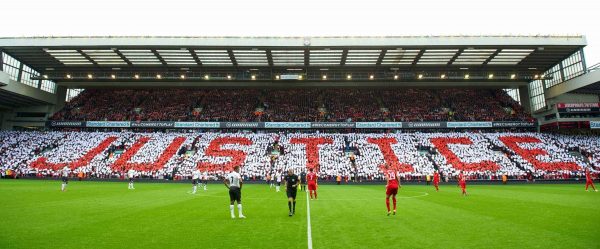
“Returning to how the collateral damage of Hillsborough reaches, sadly, beyond the 97 who died, I think it’s important that we recognise the many, many others who have suffered as a result of the disaster. There are dozens that we know of who have just not been able to carry on; who have died at their own hand. That is the definition of a tragedy, and these are the hidden histories that don’t get told. Those are the things that, for all of the moments when you think, ‘Should we be telling this story?’ – the answer is an emphatic yes. This is why dramas like ANNE have to be seen. People have to know how deeply this avoidable tragedy has affected so many ordinary people.
“The politicians who were closest to the campaign, the legacy they would like to see emerge from Hillsborough and from other miscarriages of justice is something they call Hillsborough Law. Which is that funding should never be an impediment to justice. The reason the families were able to prevail at Warrington was that, for the first time, they had access to the best legal representation in the country. That had been denied to them in the past, partly due to the brutal reality of funding.
“If you want the best you have to be able to pay for it. And that’s what Hillsborough Law is all about. It’s to ensure that anybody, God forbid, who is in a similar situation where they are coming up against a richer or more powerful adversary in the law court, that funding should not be an impediment to justice. That is something I know that Andy Burnham and a number of the current and former MPs are passionate about and are fighting for.”
Q: Had he lived, Kevin Williams would have been 49 in 2022. What might have been?
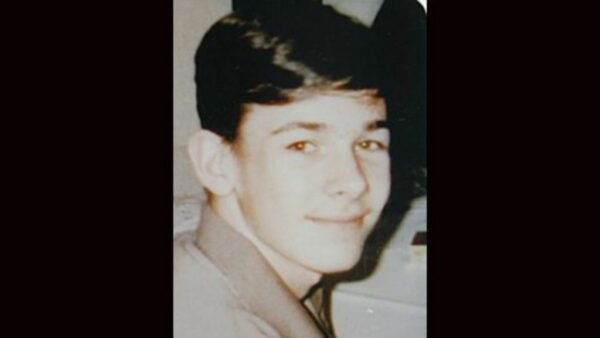
“So much to live for. We use Kevin’s original sketch in the drama. He drew this picture of the Liverpool captain lifting the European Cup. Kevin was a gifted artist. He was interested in writing. He might have become a journalist. Kevin and so many others like him, he was a kid with his entire life ahead of him. And when those anniversaries and birthdays come around, it brings it home to you, the enormity of the situation.”
Q: Anne Williams was a woman of steely determination?
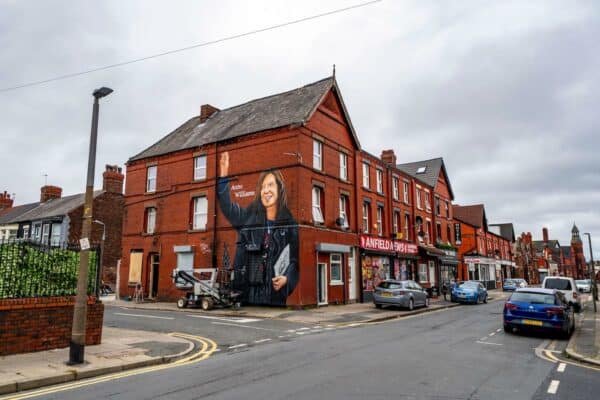
“Anne never gave up. There is a scene in the drama where Steve says to Anne, ‘Most people are good.’ I think that’s as important a message as anything. Steve and Anne adhered to that basic view and she would always give people a chance. Each time a door closed and she got knocked back, for a few days she’d be thinking, ‘That’s it. I can’t face doing this again.’ But there would be another chance, another glimmer of hope and she would go for it. With an optimism and an expectation that this time it would work out. She was an incredible woman.”
* All quotes courtesy of ITV.
Anne airs on ITV on four consecutive evenings from Sunday, January 2 to Wednesday, January 5 (9pm).
An additional documentary on Thursday 6 January (9pm) is called The Real Anne: Unfinished Business.
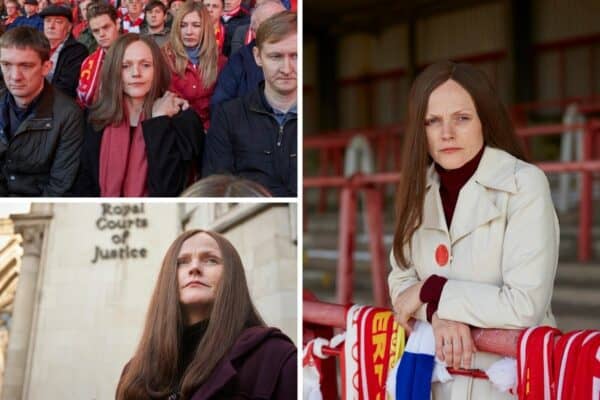
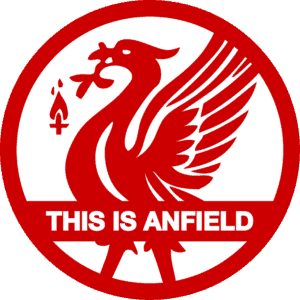


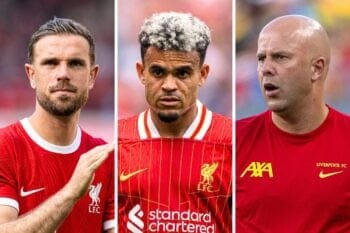
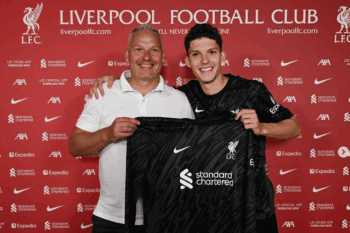






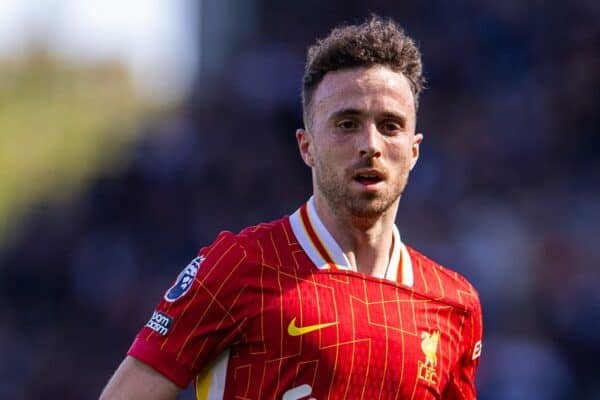




Fan Comments